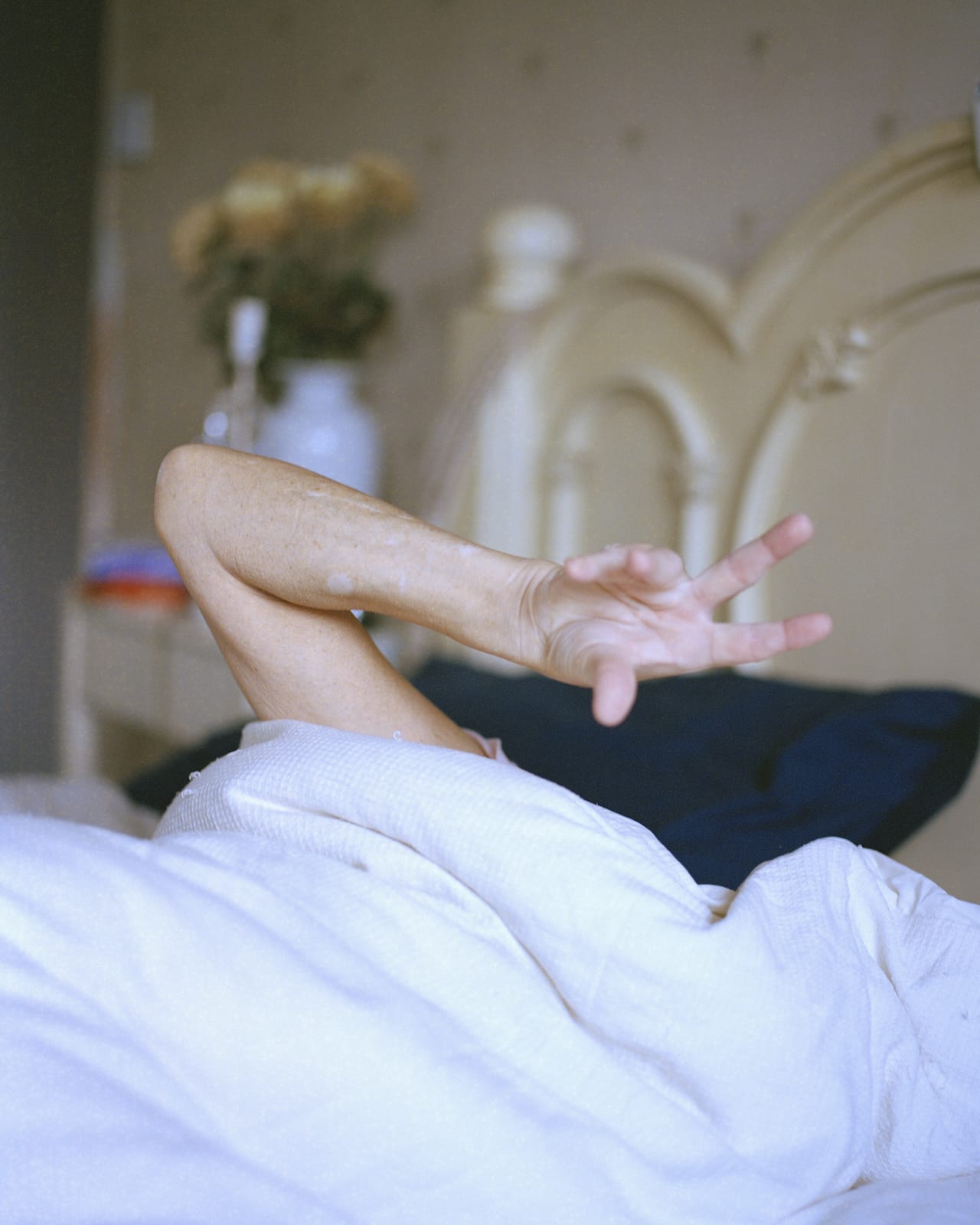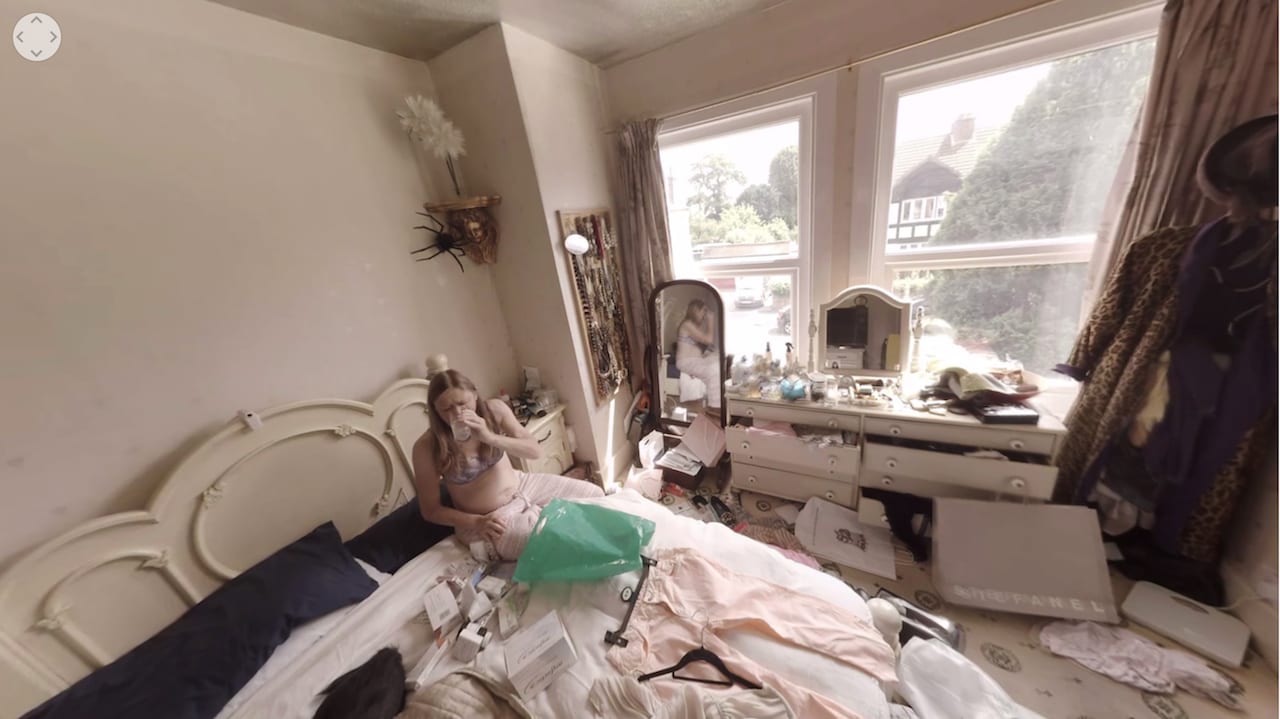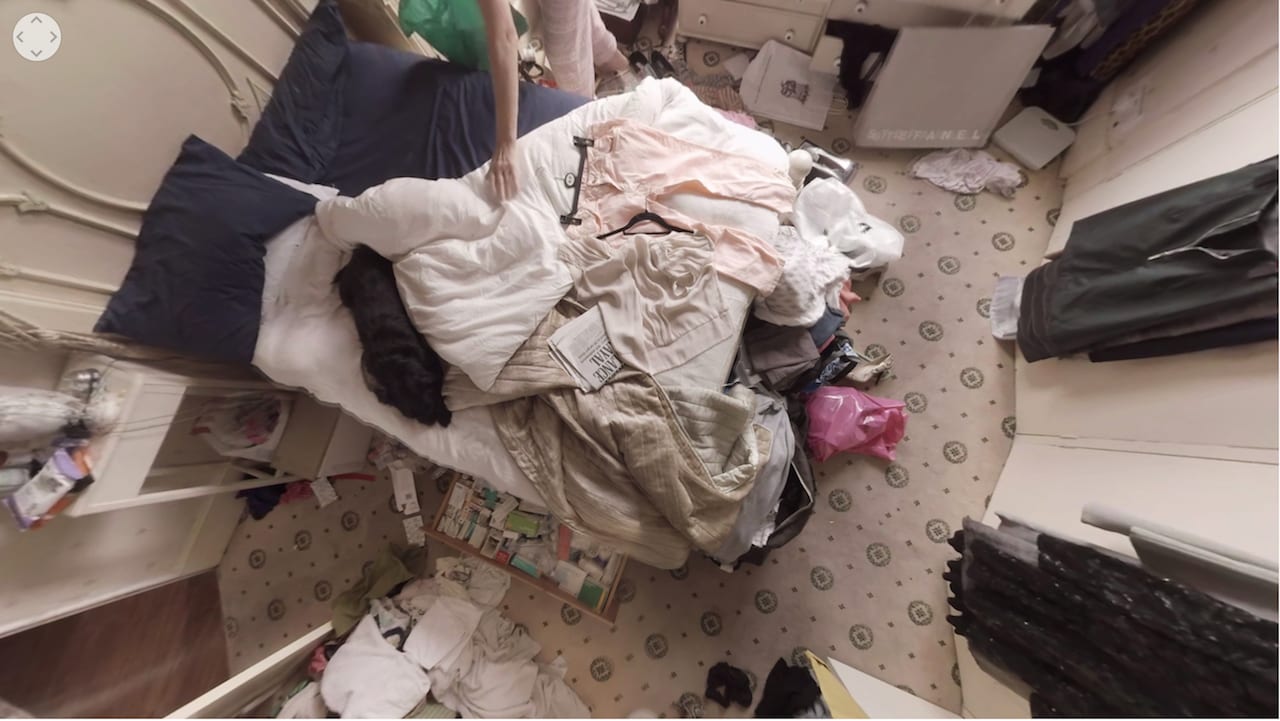Using virtual reality, Carauna invites viewers to experience how her mother Penny navigates the world with her mounting heath problems
“My mother has not been very well, and she’s not been very well my whole life. About 10 years ago, she had a kidney and a pancreas transplant, and 10 years to the day, in March this year, her kidneys started failing again,” says Natasha Caruana ahead of her latest exhibition, Timely Tale. Based around ideas of excess, the project explores modern living – with its myriad of decisions to make, health problems to negotiate, and lovers to find – via the photographer’s mother, Penny. Through a short film, the audience is invited into Penny’s mind and witness first-hand how she navigates the world despite her mounting health problems.
“What’s interesting is that she’s fairly upbeat in the narrative and in the interview, in the voiceover,” explains Caruana. “Yet, she has so many pills: she has to take 50 tablets a day, 25 in the morning and 25 in the evening to stay alive. That’s her routine to stay alive.
“Those are hardcore drugs for her. At the same time, she spends so much money she doesn’t have on designer clothes, and she is also obsessed with finding the right man and sits in bed scrolling through internet dating apps constantly. Everything she does is to excess.”
The show, which is set to feature at Brighton & Hove’s House Biennial later this month, is an interactive work, putting the viewer in control of their experience via VR headsets. Penny’s voice describes a world of potential – her love of designer items, or her longing to find a partner – but her narrative is starkly contrasted by her bedroom. Transported into her private space, the audience steps into a confined world they cannot leave, suspended from her mother’s bedroom light.
“As an audience, you’re hanging from her chandelier,” says Caruana. “She’s saying things will change and get better but at the same time you’re able to decide what you look at. You could be fixated on the pile of dirty tissues or the mess of the bed. So the audience is really put into a completely different position where you can decide what your opinion is.”
For the photographer, this presented a challenge as it meant the film had to be extremely natural, without cuts or fades, and had to be a complete visual 360 featuring no one other than Penny. To make sure that the shooting went smoothly, the pair spent a lot of time together in the two weeks preceding it talking about her medication and love life, so that Penny was able to talk on film without prompting. The end result makes for an intense experience.
“You get this opinionated view and it is very open – someone who has parents in a similar position will look at the work completely differently to someone whose mum has been an OCD clean freak,” says Caruana. “You do listen to her words of sadness and regret but, from being in her room, you can decide what to make of it. Before the photographer would be in charge, but now the audience can decide and they’re in control. That’s something that’s really going to change the way we create images.”
The exhibition is to be staged in a hospital waiting room, complete with sofas, carpets and toys from old NHS doctor units across the country. For Caruana this setting adds an equalising dimension, as we have all been waiting rooms, sharing the space with other people whose stories we don’t know. It also allowed Caruana to make a deeper social and political comment, including screens presenting data from an NHS at crisis point.
“That doctor’s space was really a place where we’re all together and we’re all comfortable, and then you pass this threshold and you go into a more private space,” she says. “Also, with NHS hospitals closing down, I’ve managed to source all the furniture. All the furniture is unique, it’s all from a doctor’s waiting room in Homerton. When you’re sitting there, you’re part of the story. You are sitting in a defunct hospital, in a place that’s had budget cuts.”
Timely Tale, which will feature as part of the House Biennial programme, opens on 30 September at the University of Brighton Galleries, free admission.



